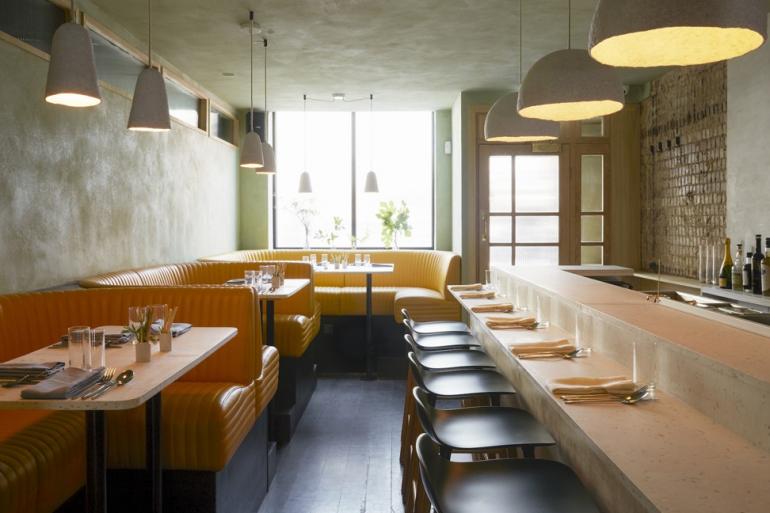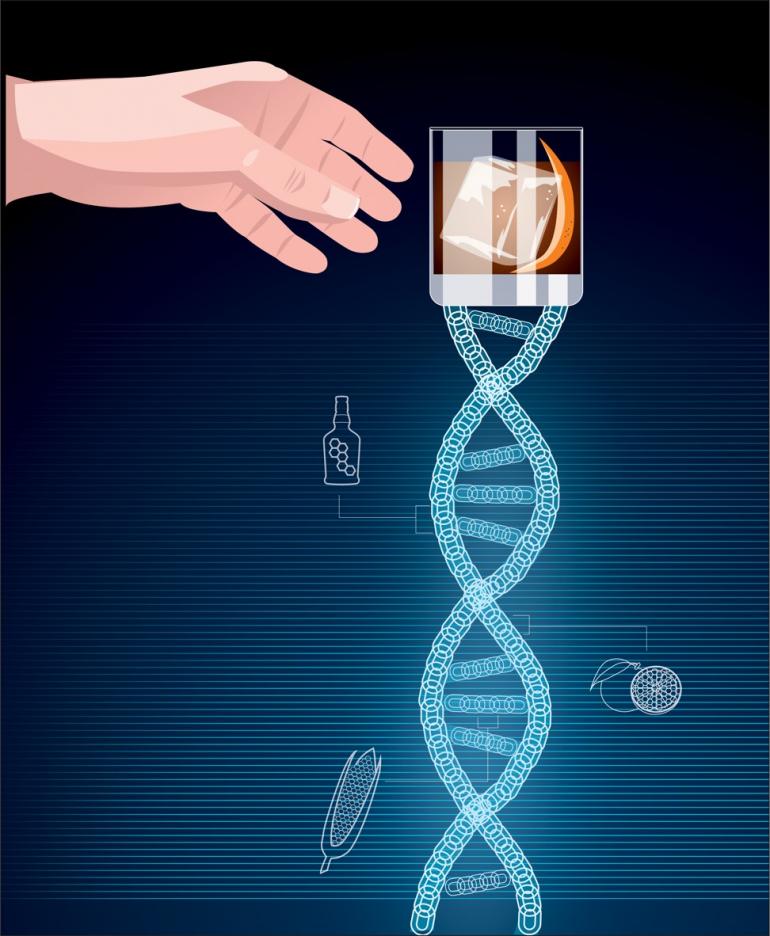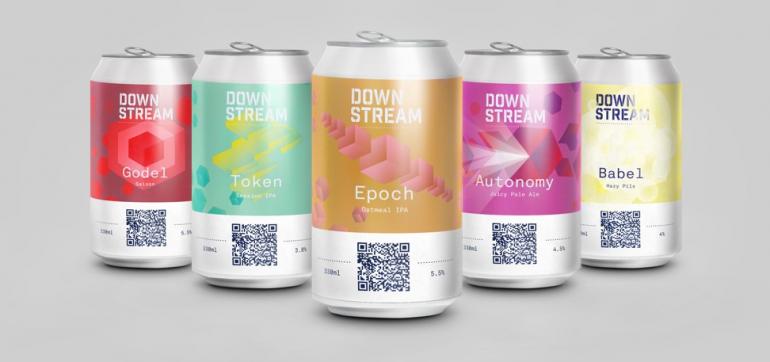You’re sitting at the bar, sipping your cocktail – let’s say it’s a classic Old Fashioned, lustrous bourbon poured over sugar muddled with bitters, a twist of orange peel resting on a dense block of ice – it’s a thing of beauty.
But have you ever wondered about the true costs implicit in your enjoyment of this drink? Your bartender may tell you what bourbon he used, but where did the distillery get its corn? Did the farmer pay his workers fairly? Did he use pesticides? Where did the orange come from for that zesty strip of peel? How long did it sit in a warehouse before it finally made its way here, to your favourite bar?
Questions like these forced Ryan Chetiyawardana, aka Mr Lyan, to find an answer. Chetiyawardana is a regular winner of global bartending awards and the creative light behind this year’s World’s Best Bar, Dandelyan, and groundbreaking sustainability restaurant, CUB, both in London. So he turned to cryptocurrency, or more precisely, the technology that underpins it, blockchain.
“We are the last link in a long chain of events that is hidden from our eyes. We hold ourselves accountable for our actions. But what of the others in this chain? There’s no point in having an amazing drink if the farmer at the start is being exploited,” he states in an open letter to the bar industry. “We wanted to see if there was a way of highlighting good practice and illustrating the need for it to exist all along the supply chain. And this is where the technology underpinning cryptocurrencies – blockchain – became interesting to us.”

Cryptocurrency inspires extreme opinions. While some herald it as a universal panacea to the tyranny of corporate control, others dismiss it as a dangerous frivolity doomed to implode. But while the debate continues, the digital ledger known as the blockchain, through which most cryptocurrencies function, may well be where the truly valuable potential of the technology lies.
Blockchain is a decentralised, distributed and public digital ledger, which means that it is not controlled by one entity, such as a bank, but is rather upheld by a wide network. Once a transaction is recorded on the blockchain, it cannot be changed. The blockchain was originally designed to be public, so anyone could join and participate in the network, although blockchains can now be private.
The blockchain can bring to light the hidden costs behind your cocktail by recording every “transaction” involved in the chain: the corn farmer could record when he sows the seed, what he fertilises with and when, when he harvests, and when the corn is sent to the distillery. The distillery would then note when the corn arrives, and record each step in the fermentation and distilling process, including minutia such as the mineral content of the water used. And so on.

“We are the last link in a long chain of events that is hidden from our eyes. We hold ourselves accountable for our actions. But what of the others in this chain? There’s no point in having an amazing drink if the farmer at the start is being exploited” – Ryan Chetiyawardana
These recorded transactions also help when things go wrong: while tracing an ingredient that has made customers ill back to a supplier with paper records can take a week, on the blockchain it can be a matter of seconds before the contaminated product is identified and discontinued.
Innovative small brands are particularly embracing the distributed ledger. Irish craft beer brand Downstream is probably the world’s first blockchain beer. After it was revealed in 2016 that Heineken Ireland beer was being mislabelled and sold as local craft brews, Shane McCarthy of export distributor Ireland Craft Beer knew he had to do something.
He partnered with Arc-net, a Belfast-headquartered technology company that develops online platforms to manage food safety and authenticity, to launch Downstream beer. Each can of Downstream has a QR code printed on the side that can be scanned with a mobile phone. The code links you to the Downstream website, which shows you every step the beer has gone through.
“The blockchain offers an immutable record of events,” says McCarthy.
“We are beer nerds at heart and the ingredients in our cans are very high quality. We want to protect that by ensuring authenticity throughout the brewing, packaging and shipping process.”
Arc-net has also worked with Irish whiskey distillery Blackwater to track their production process, as well as Ardnamurchan, which bills itself as Scotland’s greenest distillery, to record details of a limited-edition release of spirit. They are also working on a project to track the rearing and transport of pork from Europe to China.

“From the birth of an animal, including its parentage, through its life, and shipping it to China, we record all events and can identify the product throughout. When it gets to China, buyers can scan the bar code, and can be sure it’s the same product that left the UK,” says Drew Lyall, general manager of Arc-net Scotland.
But while a distillery, brewery or pig farm would already have a system to manage its own internal records which could be repurposed for the blockchain, what makes Chetiyawardana’s Blocktail project so complex is the scale: the numerous ingredients in a cocktail involve multiple players who would all need to work together and agree to be completely transparent.
“The blockchain offers an immutable record of event” – Shane McCarthy
Getting brands on board has not been easy. While their fresh produce comes from their supplier, Natoora, who “personally know each farmer whose produce they sell”, the Mr Lyan team are still looking for a spirit producer that is “brave enough to bare all”, as Mark Low of Mr Lyan Studio, the company’s bar consulting arm, puts it.
“Often the biggest challenge is explaining why blockchain is needed in the first place, what it brings to the party,” says Robin Honhold, Chetiyawardana’s business partner. “The second biggest challenge is engaging suppliers in becoming a part of our blockchain; there is very little perceived incentive outside of a philanthropic gesture that challenges our norms.”
Nevertheless, they are only one or two ingredients away from having a fully realised chain.
“With the right partners it wouldn’t take much effort to reassure larger players that this is a truly viable formula,” says Honhold.
Blockchain technology has its downsides…
While blockchain’s potential to track provenance and boost food safety is appealing, critics have been quick to point out the technology’s pitfalls.
A quality often touted as proof of blockchain’s superiority is its immutability – once a transaction is recorded, it cannot be altered. But, in situations in which it is a company recording their own processes, there is no guarantee that the original information recorded is correct.
This takes trust, but it is still less trust required than when a brand makes claims of its environmental and social credentials with no public record of its behaviour.
Powering the blockchain is also a cause of concern. Last year, a specialist in bitcoin, the world’s first cryptocurrency which runs on blockchain technology, estimated that the cryptocurrency gobbles 22 terawatt-hours (TWh) per year – almost the same as Ireland, and four times as much as Google. But more worrying is that this massive energy consumption is mostly fuelled by coal-fired power plants in China, where coal-based electricity is available at very low rates.
While private blockchains, such as the hyper-ledgers used by Arc-net, require a lot less energy, similar to cloud computing, a solution for the environmental costs of data storage is yet to be found.
“It would be great to see some innovation in this space,” says McCarthy. “Perhaps the waste products of brewing could be turned into a renewable energy source.”
Note – This story was originally published on SCMP and has been republished on this website

